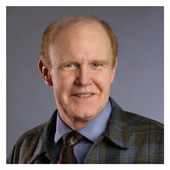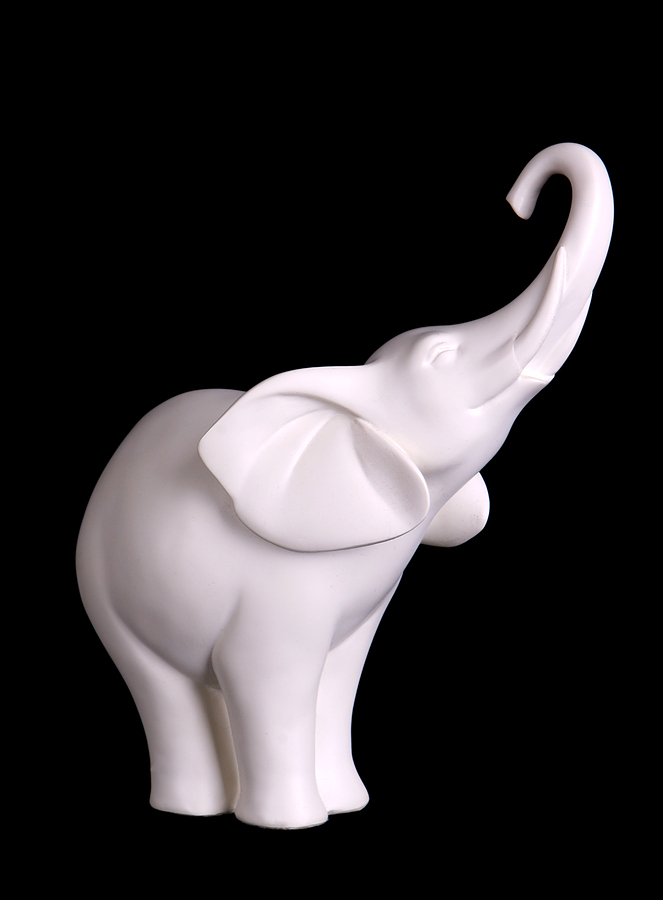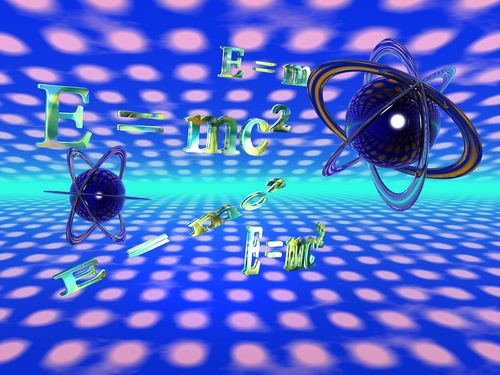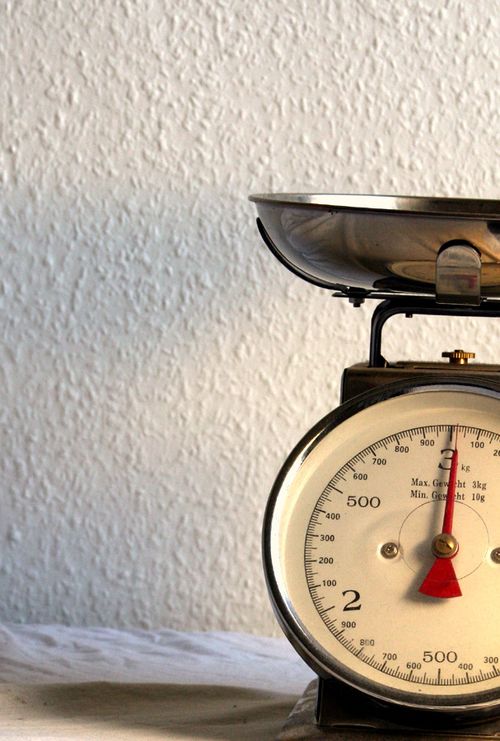Habits and Fear of Change
I have now talked with many a patient about changing up the way they do nutrition but unless there is considerable pain, emotional or otherwise, chances are there may be difficulty
We'll give it lip service especially to the doc who is the authority figure because we don't want to disappoint her/him
The White Elephant
Now this lethargy to change is not a judgement(an 0pinion with emotion) but a simple fact of human existence
Why is this? Change invokes fear of moving from our comfort zone And this is not right or wrong! This is not moralizing about our conduct It's simply the case of us being human and walking on this planet
I think the most important aspect of this fear of change issue is recognition that it is present in the first place It's like the white elephant in the living room Nobody seems to want to talk about why we have such problems
It's true that change is hard So let's own it
As Charlie Schultz's character would say, "We have met the enemy and it is us!"
It's becoming increasingly clear that the hardest thing we do in life is change our lifestyle patterns, particularly around nutrition
So this is the problem We would like to change the way we do things but we don't
How Come?
In the ensuing days we'll go into more depth about this issue because it gets to what I believe is a major stumblinig block when it comes to this concept of an evolving state of health
In order to evolve our health we have to be willing to embrace this fear of change since evolution requires us to trade in our current lifestyle habits for healthier ones
Until tomorrow: Neglecting White Elephants To health as a Skill Love DrBill
Read More
Lifestyle Nutritional Habits: 15 Worthwhile Behaviors
From an energy science view there are nutritional habits that naturally bring balance to the physiologyand hence an evolving state of health
What are these habits?
Eating foods that are appropriate for one's energy makeup
Eating foods that are compatable with one another
Developing habits that cultivate and nourish a strong digestive system
Eating the biggest meal of the day at noon
Use of a spices as digestants
Drink room temperature fluids and avoid ice
Fasting, using juice, kichari or some form of monodiet
No snacks between meals
Size of the meals around two handfuls
Try to avoid overeating
Sit to eat so as to pay attention(digestion improves with attention)
Eat in quiet spaces in order to pay attention to the eating process
Scraping the tongue in the morning to stimulate the GI tract
Sesame oil swish in the am to improve oral cavity hygeine improving the receptivity of the first part of the body that begins the process of nourishment
Notice that only two of these recommended nutritional habits have something to do with food selections The remainder are about when, where, why, and how about the eating process
This list is to demonstrate to us that the nutritional process is so much more than "Is lycopene important in my diet?"
Do you know of any nutritional systems that discusses these types of habits and/or consider them important?
What I would like to discuss in the next four ensuing posts is why we have difficulty in changing our nutritional habits, why it's important to consider change, and what can we do to help support one another if we can see that this change is what we would like to undertake
Until tomorrow for fear of change To health as a Skill Love DrBill
Read More
Emergence of a New Healing Tradition
There is a growing awareness and discontent by the medical healing community and the government that our current tradition is not addressing the needs of the consumer efficiently
"How can we fix it," we ask
To answer this tough question, I think we need to step back and better understand who we are
Matter Science Healing
Today what does healing look like? From my vantage point as a practitioner in today's mainstream medicine, we do dis-ease detection and treatment We identify a dis-ease, for example prostate cancer, then we treat it in different ways based on the patient and physician's discussion
But what happens when we can't assign a dis-ease label? What then? If mainstream medicine can't help then maybe "alternative" therapies can help
But what about these "alternative" treatments? Where do they fit in? Yoga, meditation, tai chi, qi gong, herbal therapies, the list can go on
Today's Science Can Help Sort It Out (E=mc2)
We know that our bodies are both matter and energy fields What we do when we operate on the body, measure molecules in the blood, or take molecules in the form of supplements, we are doing matter(molecular) field work
But when we apply "alternative" techniques we are for the most part doing energy field work
The mindbody is more complex than we can imagine and because of that a new biological model is emerging that is ancient yet very contemporary with present worldview of quantum reality
Medical Schools and Integrative Programs
Such training programs as Duke university's integrative medicine is one of many in the country studying these "alternative" techniques and their role in healing
Holistic, integrated approaches to healing?
Begs the question, "What's being integrated here?"
Integration of Healing
To integrate means to make one An integrated system of healing would imply that the system recognizes itself as addressing both the matter field aspects of healing as well as those of the energy field That healing requires both a matter and energy field approach
Of course the question, "Where's the proof that it works?", queries the evidence based matter science healers This is where the research comes into play to help sort it out
If we are truly going to integrate we should understand the concept of energy and matter science otherwise we potentially will be doing matter science alternatively
This requires a healthy understanding of the energy science in its basic tenets, that is, to understand the basic differences between how healing is currently being done and what is it that we bring to the party when we introduce the energy sciences
Our Part
What's a person to do?
Clearly understand the limitations of the matter science healing traditions
Clearly understand the limitations of the energy science healing traditions
Take on the responsibility for our own healing, for example, doing energy science nutritition
Until tomorrow To health as a Skill Love DrBill
Read More
Calorie Counting
As a measurement are calories of any significant import? Or is it an old hand me down concept that has little relevance as we work through nutrition for the 21st century?
We currently live in the world of measurement when it comes to nutrition How many carbohydrates, minerals, vitamins, proteins, fats Look at the label and you'll see our attestation to the numbers that are supposedly driving our selection decisions
But does this labeling really help with our decision making I would suggest that it doesn't at all That in fact we make our decisions based on the emotional appeal that the foods have and not what the numbers say
But we are obsessed with numbers and measurements because the FDA has mandated that the consumer must be forewarned about what's in the package
Now the British have begun questioning the calorie counting business and are bringing to the fore some very appropriate discussion http://bbc.in/axkQEQ
The matter science approach to measurement has its value but from an energy science nutritional view it's not so much the measurement as how the food affects the individual who is consuming it
The ultimate question from the energy science nutritional view is, "How does the food make one feel?"
Since we are not used to sensing our foods and what they do to us the next best thing is to get some guidance See foodsheal.com
If I know a lot about broccoli in terms of measurements of the above molecular ingredients but have no idea what it does to my own physiology, then I would conclude that the meausurements are useless
Until tomorrow To health as a Skill Love DrBill
Read More
Carbonated Drinks and Acidity
The American pasttime Carbonated drinks
We see them everywhere Large delivery trucks pulling up to grocery store outlets or convenience stores, vending machines, cafeteria lines You name a place and we'll find them as part of our daily lives
From an energy science view the problem is that they are imbalancing for all of us; that is, they produce dis-ease in the physiology
Why? It's due to the acidity and recently the Fooducate blog had a nice post on how acidic these foods are http://bit.ly/aGQwPp
This damaging effect to the enamel of our teeth is a health issue similar to smoking and our obesity Tooth decay can be related to consumption
I recently discussed the problem of the sugar but the other problem is acidity
The acidity affects the teeth but also over time will begin provoking the stomach and produce heartburn and acid reflux or GERD(gastroesophageal reflux disease)
What can we do?
Limit our intake of carbonated drinks
Brush your teeth after consumption if we do drink them
Find substitutes for the"fizzies"
Notice how you feel after consumption Do you feel gassy, bloated, have heartburn?
Try not to use ice with the drink
Educate your children
Until tomorrow To health as a Skill Love DrBill
Read More








